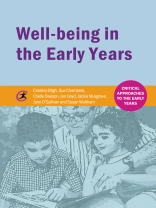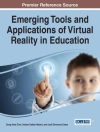A multi-disciplinary and holistic approach to the well-being of young children to support child development modules on a variety of programmes. The emotional, physical and social well-being of young children is a prime area of the new Early Years Foundation Stage (EYFS) and is at the forefront of current policy and debate. This text goes beyond issues of safeguarding to address how the well-being of young children can be affected by a range of circumstances and how well-being is promoted by professionals from a variety of disciplines. It looks at various aspects of well-being in the young child from a number of perspectives, and examines key issues such as special and additional needs, poverty and deprivation, abuse, race, ethnicity and culture.
Table of Content
Introduction to critical thinking
Introduction: challenging misconceptions about well-being in the early years
1. The parents and extended family perspective
2. The early years professional perspective
3. The early years teacher perspective
4. Health and well-being of the young child
5. The foster/adoptive parent perspective
6. The social worker perspective
7. Reflection on well-being of young children
About the author
Susan Waltham is a Senior Lecturer teaching on a number of undergraduate and postgraduate courses in the School Of Education and Childhood at Leeds Metropolitan University. Her academic expertise is in child psychology and human development, diversity and equality. Her research is centred on identity construction in young children in multi-cultural, multi-linguistic settings. She also works as an independent consultant with organisations and early years settings in China, Pakistan and Malaysia. She was involved in developing a new school in Lahore, Pakistan that uses an emergent curriculum model for children of 3 to 12 years old. Currently she is working on introducing a play based curriculum to kindergartens (3 to 6 year-olds) in a number of cities in China. Susan has been a foster and adoptive parent for 31 years.












